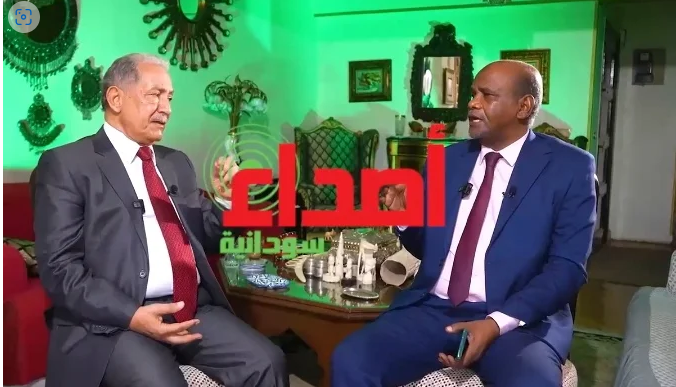A former Egyptian Foreign Ministry official calls for the formation of a non-partisan government of competences in Sudan

Interview: Mohamed Al-Fatih
Former Egyptian Assistant Foreign Minister and Head of Egyptian Council for Foreign Affairs, Mr. Salah Halima, said that the Egyptian government has set four tracks to address the Sudanese crisis and end the war.
Mr. Halima affirmed, in an interview with (Sudanese Echoes), that the war has vandalized Sudan, the people, and the state, as well as neighboring countries, urging consensus among the Sudanese society and all its spectrums and components to find a radical solution to end this crisis.
Mr. Halima revealed that the Egyptian Council for Foreign Affairs has proposed an initiative to resolve the Sudanese crisis through four tracks: Halting the war, addressing the humanitarian situation, building and reconstruction, and political consensus with the participation of all political forces except the National
Congress Party. He stressed the existence of popular consensus to dissolve the Rapid Support Forces (RSF) Militia.
The Egyptian Initiative
Mr. Halima pointed out that the Egyptian initiative supports what was agreed upon in the Jeddah Declaration, which was not implemented due to the lack of implementation mechanisms. “When we talk about a ceasefire, this requires the presence of observers to follow up on the agreement so that no breach occurs and to implement any provisions related to the ceasefire decision, such as the withdrawal of the RSF militia from homes and civilian facilities”, he said. Therefore, the Former Egyptian Assistant Foreign Minister added, our initiative spoke about the presence of mechanisms, not supporting the parties with weapons from regional countries, stopping hostilities and a ceasefire, in aligning with the Jeddah forum and the neighboring countries initiative.
A government of competencies
With regard to the political path of the Egyptian initiative, Mr. Halima said that their goal is to find a political horizon and form a non-partisan government of competencies, agreed upon by the political parties, and not to politicize the military institution. He explained that they sat with all political parties who agreed upon the necessity of establishing a permanent constitution during the transitional period with the participation of the people of Sudan.
Ambassador Halima refused to describe the recent Geneva negotiations as an attempt to hijack the Jeddah platform, saying that America was the one who called for the negotiations, and it is an original party in the Jeddah platform. He explained that the Geneva platform is not much different from the Jeddah platform, because it focuses on a ceasefire and addressing the humanitarian situation.
Complaints of the Sudanese Community in Egypt
Asked about his opinion on the complaints of the Sudanese community in Egypt from the delay in procedures for granting residency and visas, the ambassador said that they, in the Foreign Affairs Council, heard about these problems and they were raised to the authorities to address them. He said that the Egyptian ambassador to Sudan is doing a great job on the issue, and that the Egyptian Council for Foreign Affairs has contacted him to facilitate entry procedures.
